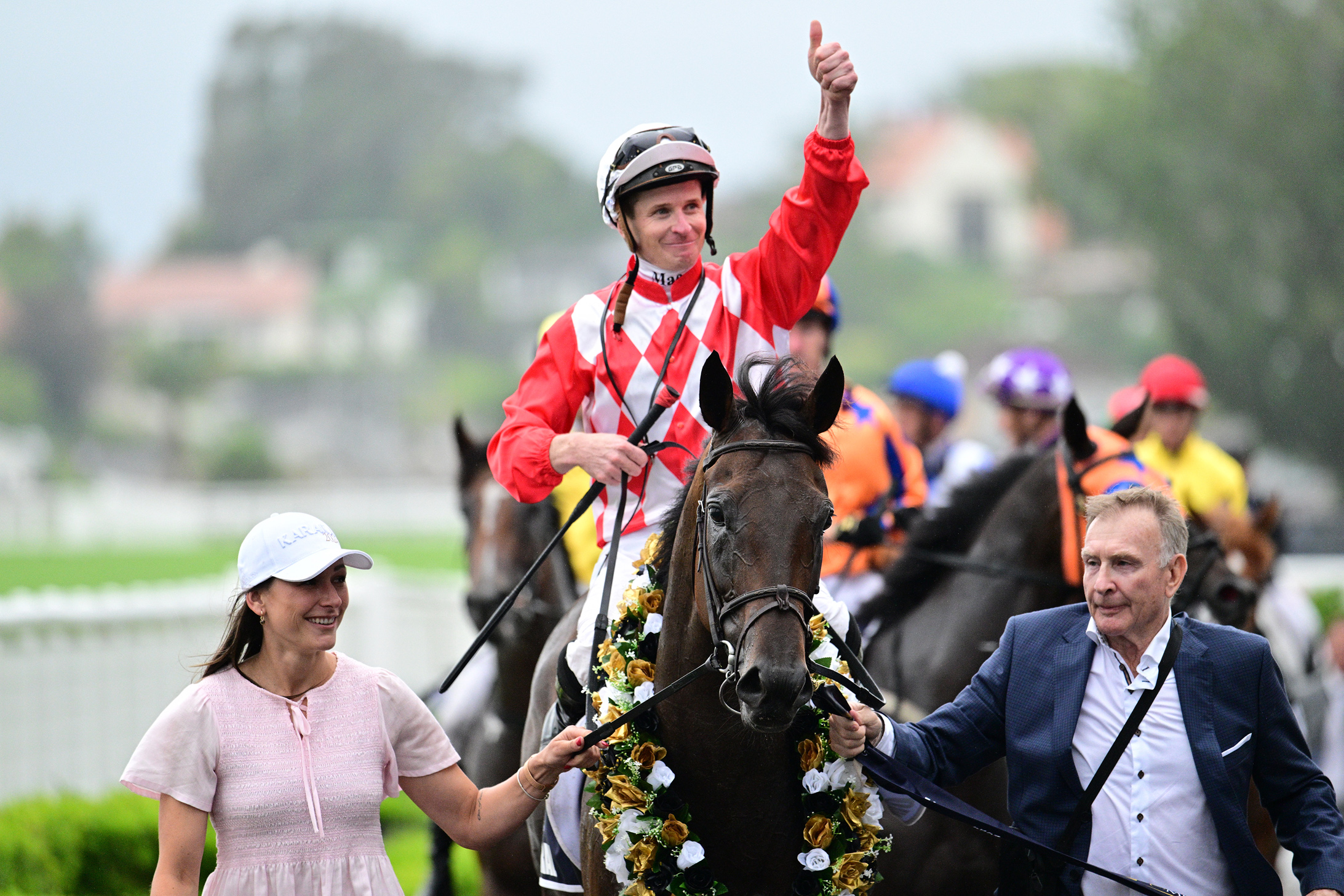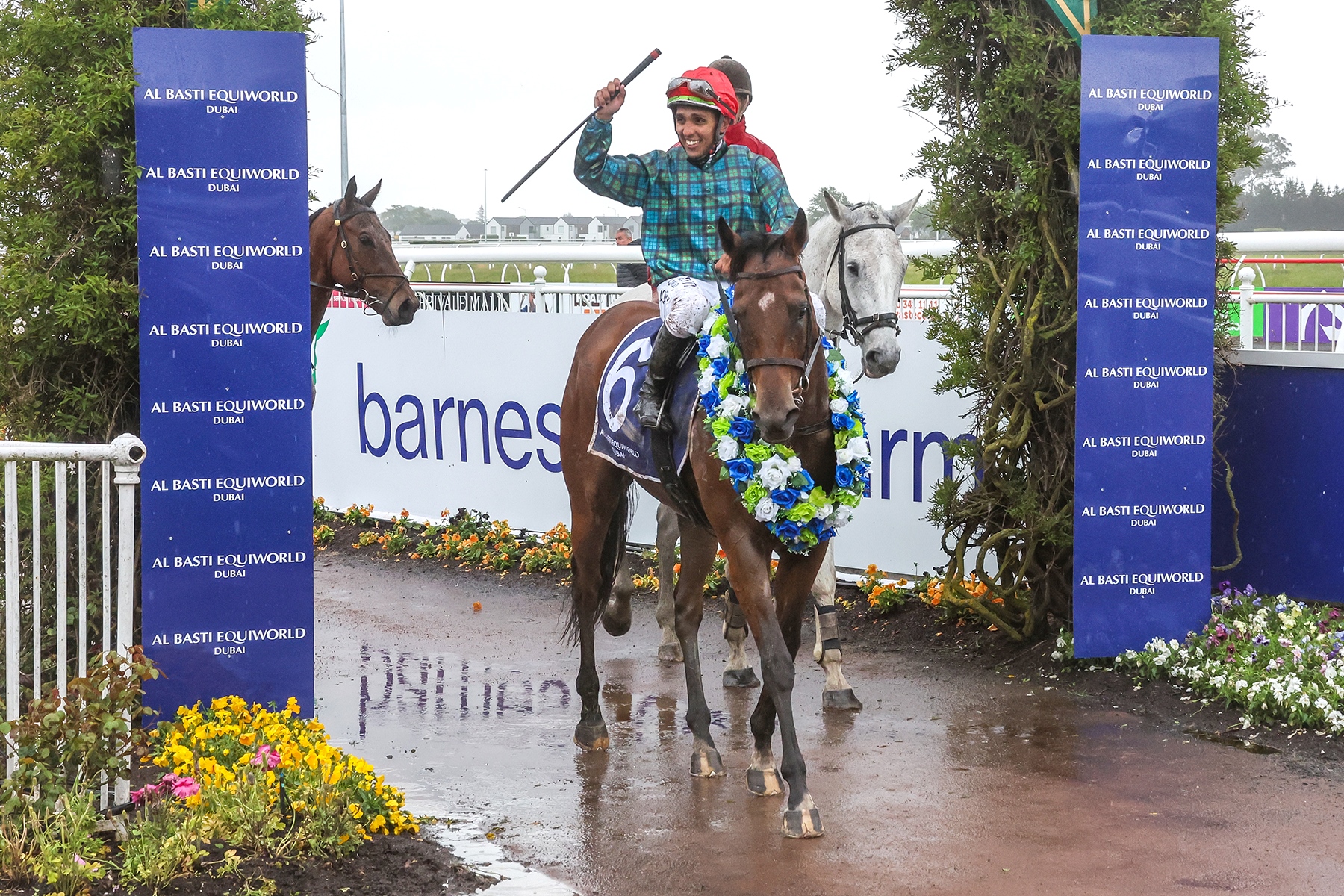|
Getting your Trinity Audio player ready...
|
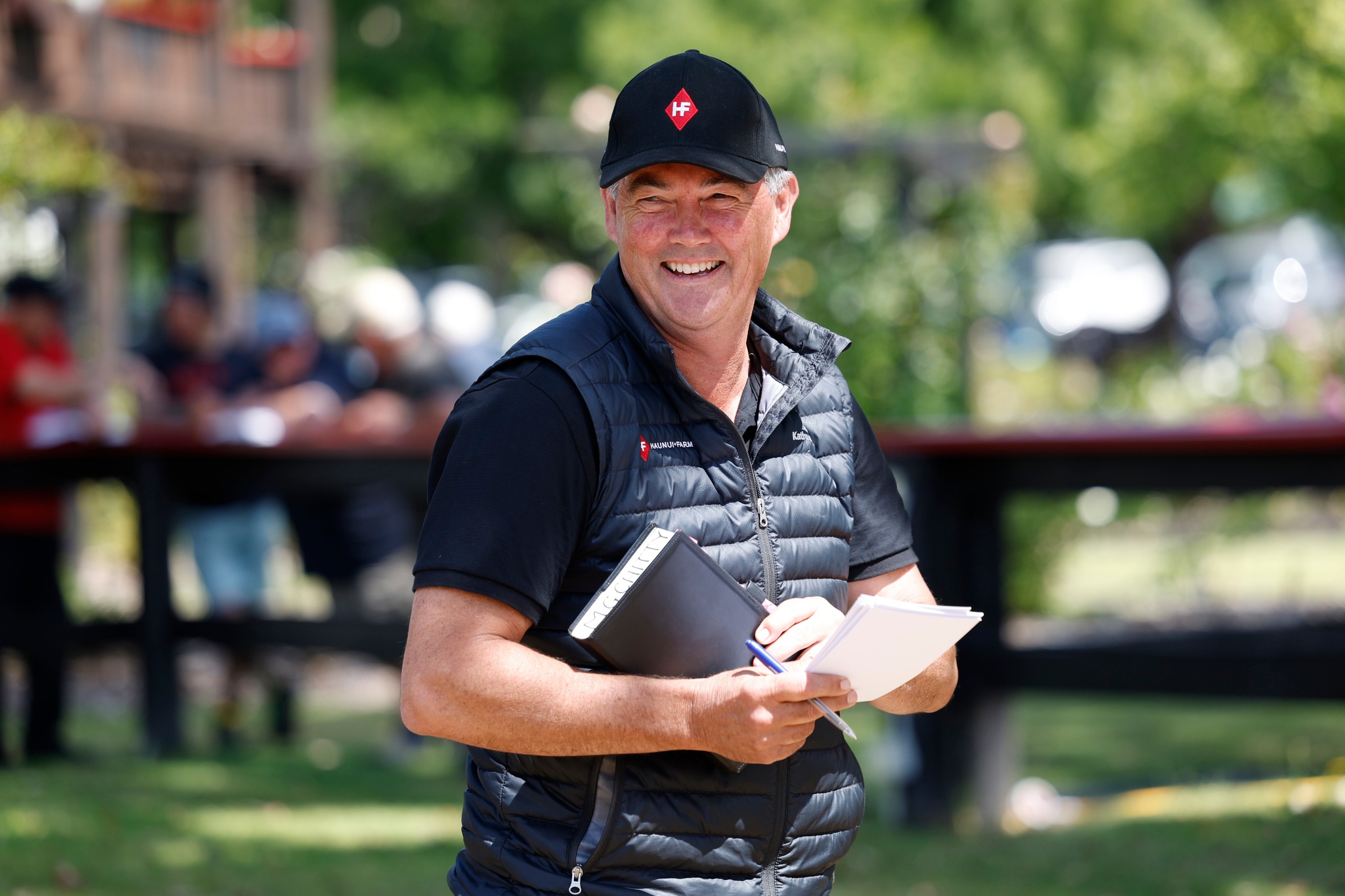
Mark Chitty is the managing director of thoroughbred stud Haunui Farm in Karaka. The business is one of many across the country taking part in National Thoroughbred Week, opening up the property to visitors this Sunday. Breeding thoroughbred racehorses today requires a totally professional approach, he tells Helena O’Neill, and the open day offers regular Kiwis a chance to see that in action.
How long have you been running the farm here?
We moved to Karaka at the end of 2009, after previously being at Whitford for close to 60 years. We were fully operational here in 2011.
There was a lot of thoroughbred breeding over on the eastern side of Auckland for many years. We ended up being a little bit of an outlier and then we moved across this way. It’s been a good fit.
So what was the property here like and what do you do?
The property was an existing horse stud and sort of pre-training establishment. It took us a little bit of time to put our spin on the property. Now we’re basically a hotel for horses. We’re a thoroughbred breeding and management operation. We have a number of clients, both in the Auckland area and in the South Island. We’ve got overseas clients as well — basically in Australia, Singapore, Hong Kong — that have the horses with us.
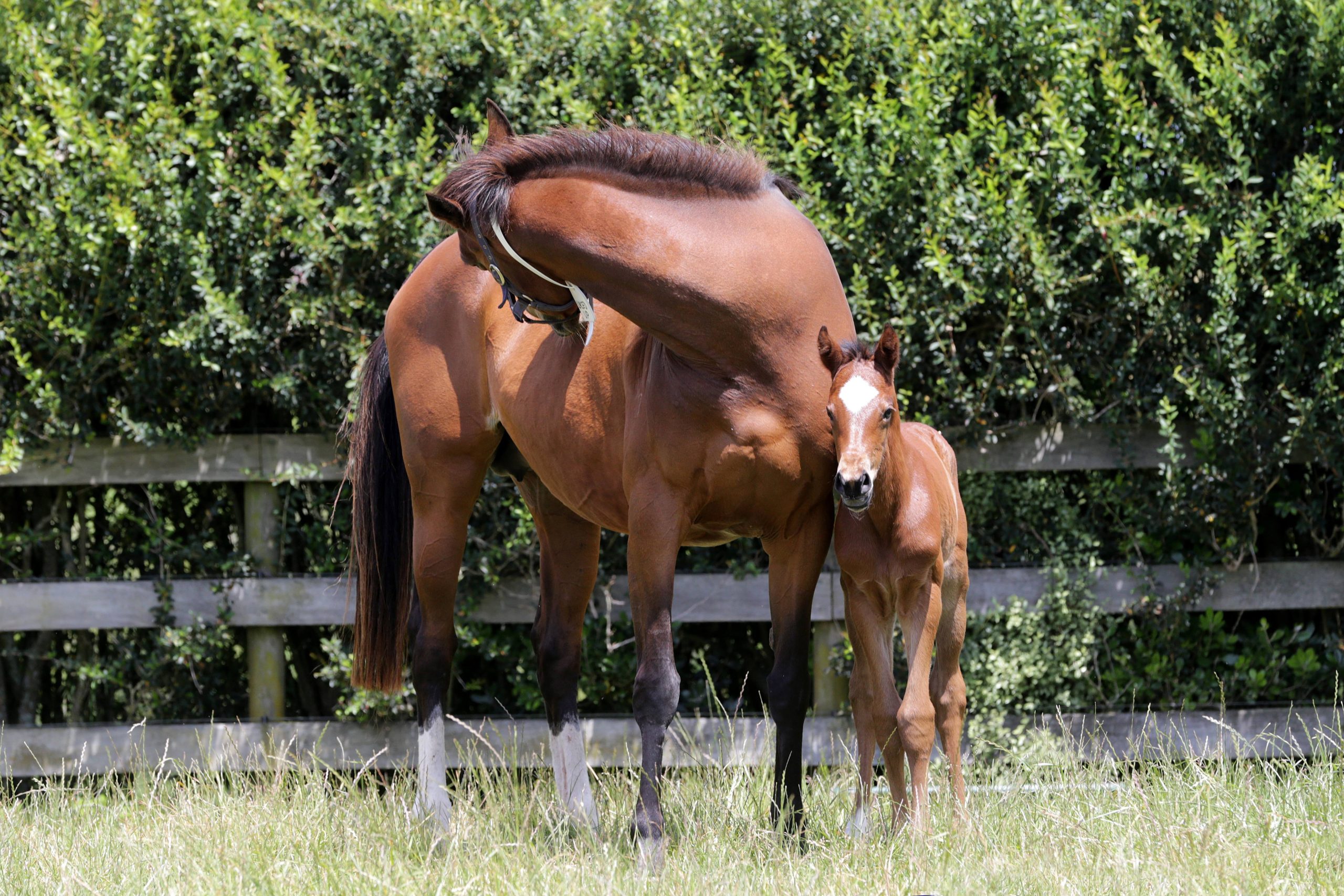
So how many horses are on site?
It’s a seasonal business, so the really busy part of the year is from the 1st of August through till the end of January, early February. Right now we’re in the breeding season. So we’re foaling and breeding mares. Thoroughbreds are a little bit different in the fact that we only breed naturally, so there’s no AI [artificial insemination], no embryo transfer.
How does that all work?
We’re guided by the international stud regulations, which are governed outside New Zealand, so if we want to play part of the global scene, then that’s what we have to do. The breeding is all natural. This is the first year we haven’t stood stallions. We will foal down 220 mares this year, of which part is hospital-like. There are people who use our services for their mares, a bit like a women’s hospital – they come in for the mare’s birth and within 48 to 72 hours they are going back to their owners’ properties.
Most mares seem to foal between 9pm and 4am. I think that’s just the way, even though they’ve been domesticated to a certain extent, they still have that fight or flight reflex and protecting a foal like they would in the wild.
How long are you in the foaling season?
We started on the 25th of July, so it’s been a fair while, and we still have a few mares left to foal.
It makes for a busy time because now you’re in the racing season.
Saturdays are big days for us, because everything that we do revolves around trying to breed fast racehorses. So it’s good you’re busy, but you’re also hopefully enjoying the fruits of your labour during the spring.
How did you get involved with the industry?
It’s a family business; I’m basically a third-generation. I’m a veterinarian by trade, so I actually worked full-time as an equine veterinarian for 12 to 14 years before I came back into the family business, and I still do vet work here.
My area of real interest is equine reproduction and young foal health. When I was in full-time practice, I did quite a bit of racehorse work, but now I only do my own work. So fundamentally, it’s around stud management.
Raceday is at Pukekohe Park this Saturday, is this a big day for you?
It’s the biggest race day for Pukekohe Park, Counties Cup Day. It’s generally a really good crowd. We sponsor the sprint race, and it’s quite exciting, because it’s the start of the sprinting season. From November all the way through to March, so it’s quite nice to be at the front end, leading the charge.
What’s your favourite part of this industry?
It’s the rewards that aren’t always the obvious rewards. From my perspective, you sometimes have a mare that hasn’t had a foal for three years, and you get a live, viable foal, when others have said that you’re wasting your time. That’s really satisfying.
For people coming along to your open day this Sunday, what can they expect to see?
We’re going to show a variety of horses. If a visitor has had an interest in racing, then there’ll be some bloodstock there that they will know. We’re going to show the dam of Melody Belle, who had the most Group 1 wins in New Zealand, with 14 Group 1 wins.
There’s also a mare called Foxona, who my grandparents bought off my great-grandparents back in the 1950s. We’re going to show a couple of her relations, the seventh or eighth generations, which shows there’s been a lot of longevity.
We’ll show some mares and foals, along with some yearlings that will go to the Karaka sales. And then we’re going to give people an opportunity to see what scanning a mare in early pregnancy might look like.
I think a lot of people associate racing with gambling. That’s fair, but it’s a lot more than that.
We have every type of brood, from club to Group 1.
Did you ever have a particular horse that surprised you?
I suppose one of the biggest surprises is probably one of my father’s wonderful stories. They had a filly, and after taking her to three different sales (the same auctioneer was trying to sell her,) they couldn’t sell her. And then the auctioneer afterwards asked Dad what he was going to do with the filly? He wasn’t sure, and the auctioneer ended up having a group of people who might like to lease her, which they did.
The filly ended up being a Group 1 winner, called Fun on the Run. She won nine of her first 14 starts and finished second on three other occasions. By the time she retired, her wins included the Group 1 Thorndon Mile and the Group 1 International Stakes at Te Rapa.
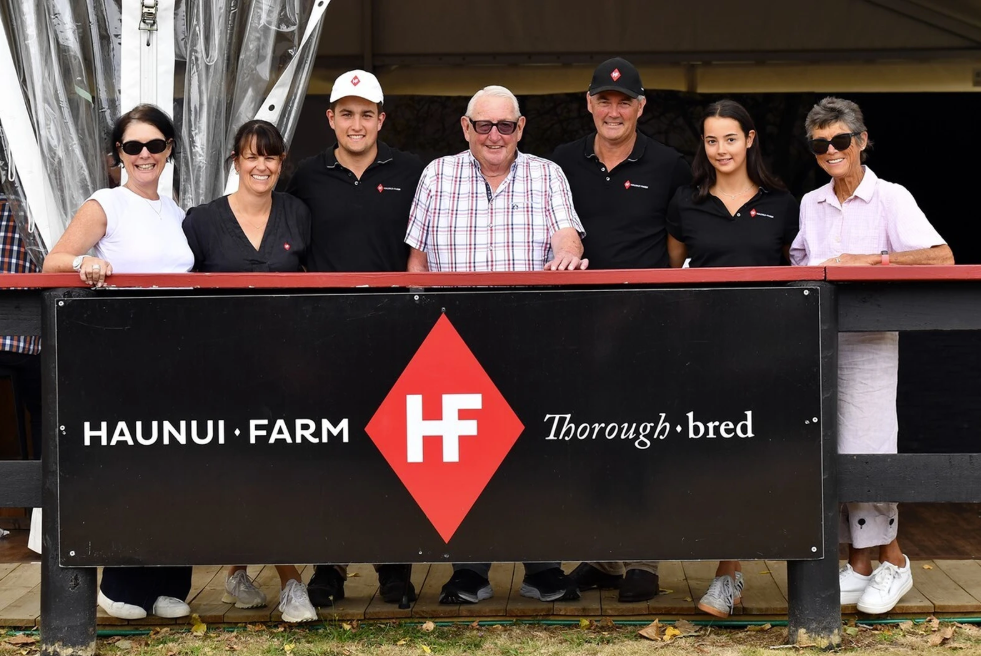
Haunui Farm was founded in 1955 by Mark’s grandparents, Geoff and Peg Chitty, with the foundation of broodmares acquired from the estate of Peg’s late parents. It was one of these mares, Foxona, whose descendants left an indelible imprint on both Haunui Farm and the Chitty family.
The first yearling bred at Haunui Farm was sold at the Trentham sales through Trelawney Stud in 1957.
Marco-Polo out of Foxona, subsequently named Matauwhi, was a winner of six races, including two stakes placings.



